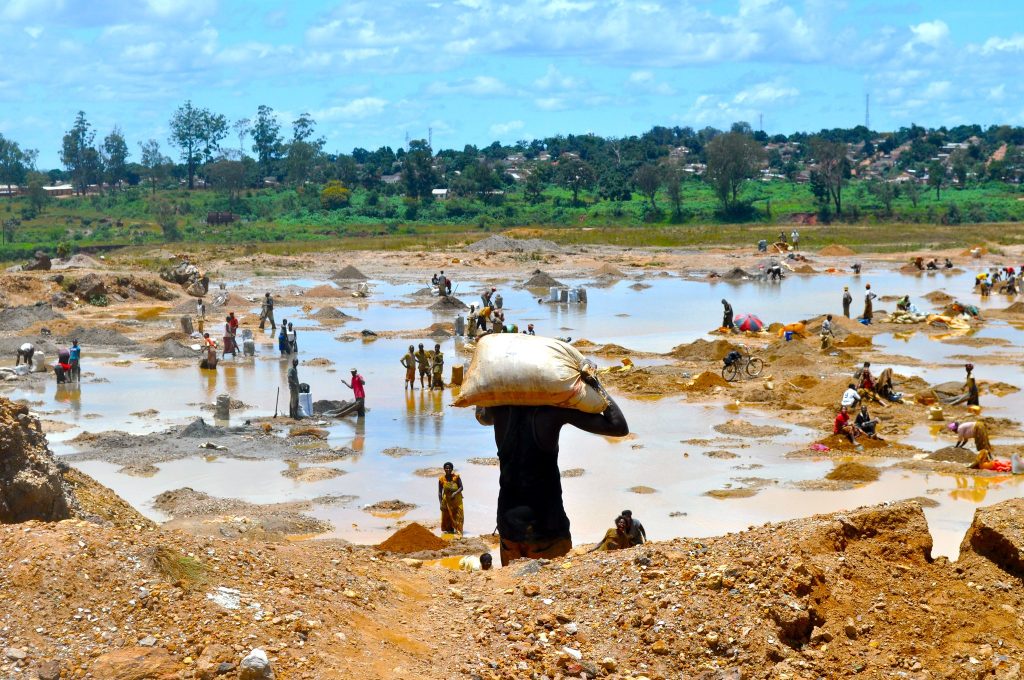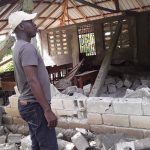Undeniable tensions exist between ecology and energy, even with respect to attempts to make energy greener. The Catholic Peacebuilding Network, housed at the Keough School’s Kroc Institute for International Peace Studies, is conducting a multifaceted research project on mining and peacebuilding. One of the most challenging issues that has emerged in this work is the dependence of renewable energy on extraction. Widely touted as a centerpiece of strategies to combat climate change, renewable energy requires certain minerals in order to function. Hence the tension: reducing the extraction and use of fossil fuels comes at the cost of increased mineral mining. In some global South settings resolving this dilemma is crucial given its implications for climate justice, human rights, and development. How, then, do we assess the trade-off between fossil fuels and mining necessary for renewable technologies?
In his encyclical Laudato Si’, Pope Francis presents the concept of integral ecology in acknowledgement of the inextricable connection between social, economic and environmental challenges, which in turn requires an integrative response (ch. 4). There is no easy calculus to balance renewable energy and the impacts of mining, but the pope’s principle of integral ecology can help set the moral terms of the equation.
Renewable Energy and the Extractivist Paradigm
The importance of mining for renewable energy allows mining companies to position themselves as leaders in the fight against climate change and to greenwash projects with serious environmental implications. The International Council of Metals and Mining, for example, explicitly ties the efforts of its members to United Nations Sustainable Development Goal 7, arguing that, “Technological solutions, enabled by products from the mining and minerals sector,” will be central to the clean energy transition for which the goal advocates.
To replace fossil fuels with renewable energy, one kind of digging must be replaced by another.
The reality is that to replace fossil fuels with renewable energy, one kind of digging must be replaced by another. And the adverse economic and ecological impacts on the communities where the mining occurs remain. Another dimension of the problem is that most clean energy technologies are being put to use in the global North, while the mining that enables them occurs in the global South. According to Benjamin Auciello, author of a report on mining and clean energy for the London Mining Network, “The dominant vision put forth by industry, international financial institutions, Northern states, and many Northern NGOs threatens to simply displace emissions from the North while generating greater impacts in the South through offsetting and market mechanisms, as well as increased metal mining and extractive projects.”
The Democratic Republic of Congo (DRC) is a paradigmatic example of these dynamics. Since a major international push in the 1990s to expand and privatize mining, the human and environmental costs imposed on the people of the DRC by mining have been multifaceted and considerable. Today, the DRC produces more than half of the world’s cobalt, which is used in many different technologies, but batteries for renewable energy are expected to account for more than fifty percent of its projected market growth by 2025. This means increased capacity for renewable energy in the global North will come at the cost of human rights violations, state violence, social instability, environmental damage, and compromised economic development in the DRC, where, ironically, mining in remote areas is bringing attention to a severe lack in energy infrastructure.
Renewable energy is a good thing. The challenge, then, becomes how to untangle renewable energy from extractivist development.
Still, renewable energy is, in principle, a good thing. It is a better option than continued fossil fuel pollution accelerating climate change. It would be naive, and perhaps even counterproductive, to suggest that all mining stop. Although many of the resources needed for clean energy technology are highly recyclable, recycling is not a panacea that would completely eliminate the need for virgin ores. The challenge, then, becomes how to untangle renewable energy from extractivist development, which Auciello describes as “the high-intensity export-oriented extraction of common ecological goods rooted in colonialism and the notion that humans are separate from, and superior to, the rest of the living world.” This mentality assumes that problems related to extraction can be solved by more extraction, and that economic growth is a value which outweighs the damage that extraction may do.
If mining is necessary for renewable energy, the ethical question becomes how might communities be empowered, politically and economically, to be able to say yes to life, and no to mining.
Laudato Si’ and Renewable Energy through Integral Ecology
In Laudato Si’, Pope Francis endorses a shift to renewable energy (sec. 26). But one of Francis’ overarching concerns in the encyclical is the way vulnerable peoples in the global South bear an undue burden from climate change while a “throwaway culture” (sec. 22) leads to a disproportionate amount of energy consumption in the global North and drives climate change. Thus the context of his endorsement of renewable energy is the concern to rebalance the inequity of energy consumption, climate change, and cost. In the encyclical’s view, development must incorporate a sense of integral ecology and reckon with North-South climate justice while advancing green energy to combat climate change. In an address to a 2019 Vatican meeting with executives from the mining industry, Francis applied these concerns specifically to the practices of the extractive industry: “We need a paradigm shift in all our economic activities, including mining.”
In the effort to balance the good of renewable energy and the possible disadvantages of mining, Laudato Si’ acknowledges that “[t]here are no uniform recipes, because each country or region has its own problems and limitations” (sec. 180). Whatever the particulars of a given situation, however, one principle remains constant: Wealthier nations that consume more goods should be responsible for their share of the cost of addressing climate change (sec. 170). Those poorer countries that receive less benefits but bear more burdens ought to be allowed to prioritize the development of their own people above anything else (sec. 173). They should be able to self-determine what course of economic activity and resource use best responds to their communities’ needs, cultures, and values. If mining is not the answer, these countries are free to pursue alternative options even if it means less resources for renewable energy and higher costs for that energy having to be absorbed by those in high-consuming countries. And if mining is part of the answer, a fairer share of the benefits must accrue to those countries, including access to the energy technologies enabled by mining.
The encyclical criticizes the lack of transparency and honest, in-depth information provided in most impact assessments. Such assessments, Francis maintains, must include comparisons of the impact of a proposed project alongside alternative options, so that community decisions can be truly informed (sec. 184). Impact assessments are one of the primary tools by which communities and governments can try to balance development decisions with environmental concerns; if they are done poorly, governments and communities are stripped of their power and rendered less capable of safeguarding their dignity and the integrity of their land.
Francis acknowledges that there will be situations where right answers will not be clear and consensus even among parties of good-will will be hard to establish (sec. 188). But the principles set forth in Laudato Si’ constitute a framework for thinking clearly, justly, and sustainably about balancing the need for clean energy with the fact that we cannot yet attain it without risking harm to environments and communities where the materials for the renewable energy revolution are mined.
The world is likely better off with the renewable energy technologies that currently depend on copper, cobalt, tantalum, and many other metals and minerals. But that proposition grows weaker if the procurement of such materials comes at the expense of the self-determination, integral human development, and dignity of the local communities in whose lands they are mined.
Caesar A. Montevecchio is assistant director of the Catholic Peacebuilding Network, which is housed at the Keough School of Global Affairs’ Kroc Institute for International Peace Studies.
This article is part of a series of blog posts published by the Keough School of Global Affairs. Dignity and Development provides in-depth analysis of global challenges through the lens of integral human development.
Photo: “Washing the copper ore” by Fairphone is licensed under CC BY-NC 2.0.



